bfk92/E+ via Getty Images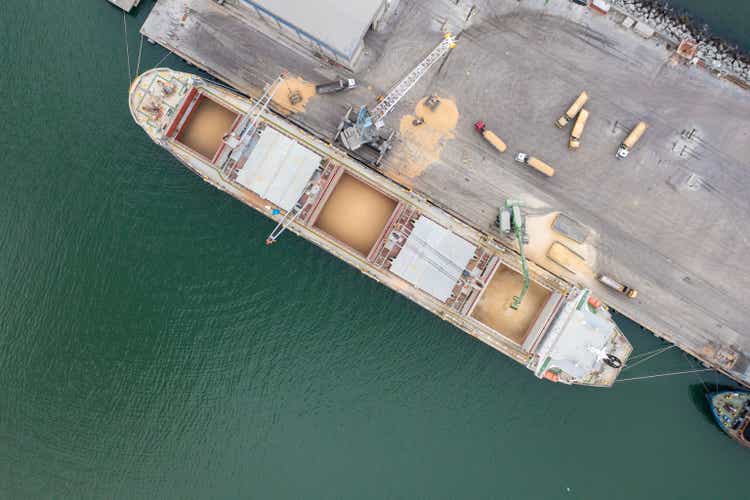
By Paul Wightman
At a Glance
- As the global wheat trade expands, the first futures are trading in Romanian and Bulgarian wheat.
- Adverse weather in key grain-producing regions is contributing to supply uncertainty.
A new cash-settled futures contract connecting wheat from the export-intensive Black Sea region to the global market is off to a strong start, offering a platform to traders for risk management, arbitrage opportunities with other regional markets and potential cross-hedging strategies.
The Black Sea Wheat (CVB) Financially-Settled (Argus) futures allow for the effective pricing of wheat from one of the biggest exporting regions in the world, particularly from Romania and Bulgaria, which ships wheat from the ports of Constan?a, Varna and Burgas (collectively known as CVB). Wheat from Romania and Bulgaria is shipped to destinations across the globe alongside Black Sea wheat supplies from Ukraine and Russia.
A total of around 160,000 metric tons of wheat has been traded in the first month since launch in early June 2025, and the contract is also beginning to trade on a more regular basis. Many traders expect the contract to become the leading international benchmark for the Black Sea region. Additionally, some basis trades across the Black Sea and beyond are expected to be concluded against the CVB wheat futures as the pace of trading develops (see hedging example here).
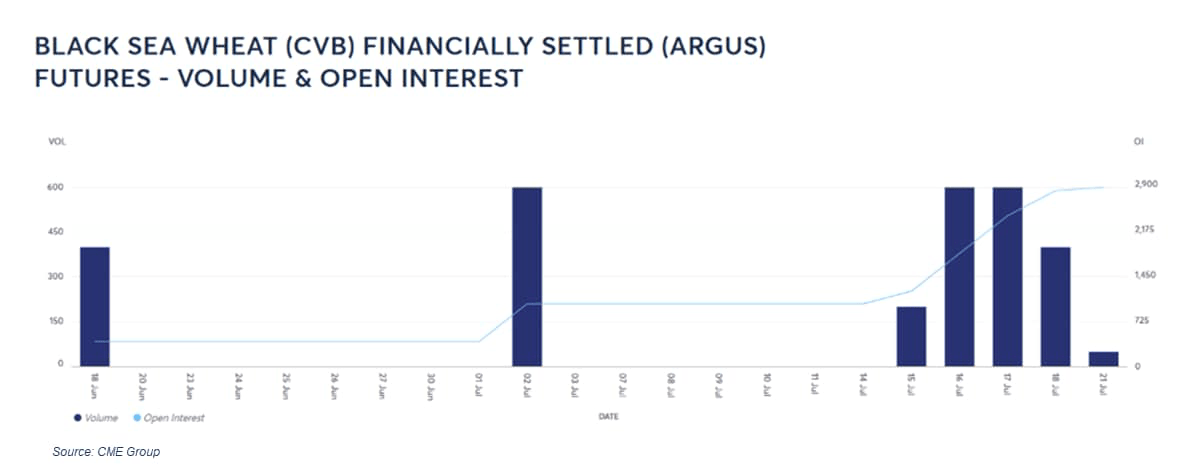
CVB Wheat, A Reliable Benchmark for Wider Black Sea Trade
The pricing and correlation of CVB wheat to other Black Sea markets make it an effective price-risk management tool for the broader region. Romania and Bulgaria have exported over 56 million tons of wheat since 2020, according to the latest data from Eurostat. Romanian and Bulgarian exports have reached around 13 million tons in the latest U.S. marketing year 2024-2025 (June-May), according to data from the U.S. Department of Agriculture (USDA). Export volumes from the CVB ports have increased 16% since 2022.
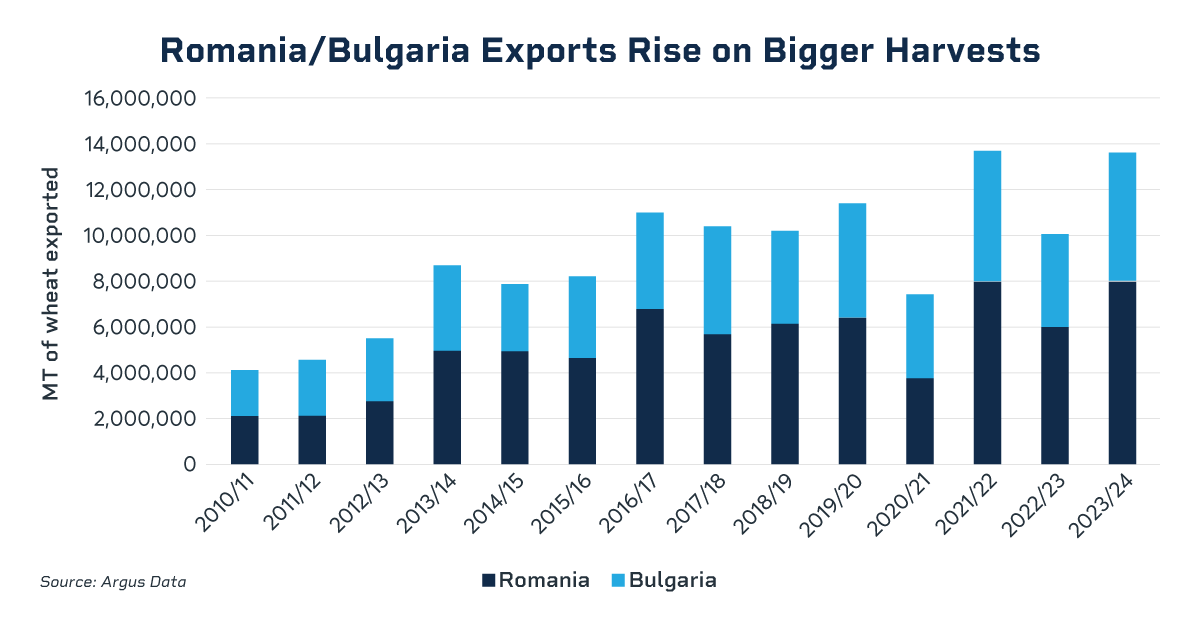
The daily Argus CVB price is well correlated to the daily Argus price of wheat exports from the Russian Black Sea port of Novorossisk. The stability in overall export levels also helps to make the CVB price a reliable price indicator for the broader Black Sea region. The latest published set of Argus daily prices through June 2025 shows a high correlation between their CVB price Free on Board (FOB) and FOB Novorossisk at 0.97, indicating that the Argus CVB wheat price (which is the basis of the CVB futures) could be readily used as a hedging instrument for cargoes loading out of Novorossisk. Typically, a value of more than 0.80 means that prices are well correlated and that traders can use the price of a commodity to hedge an underlying price exposure to the other market.
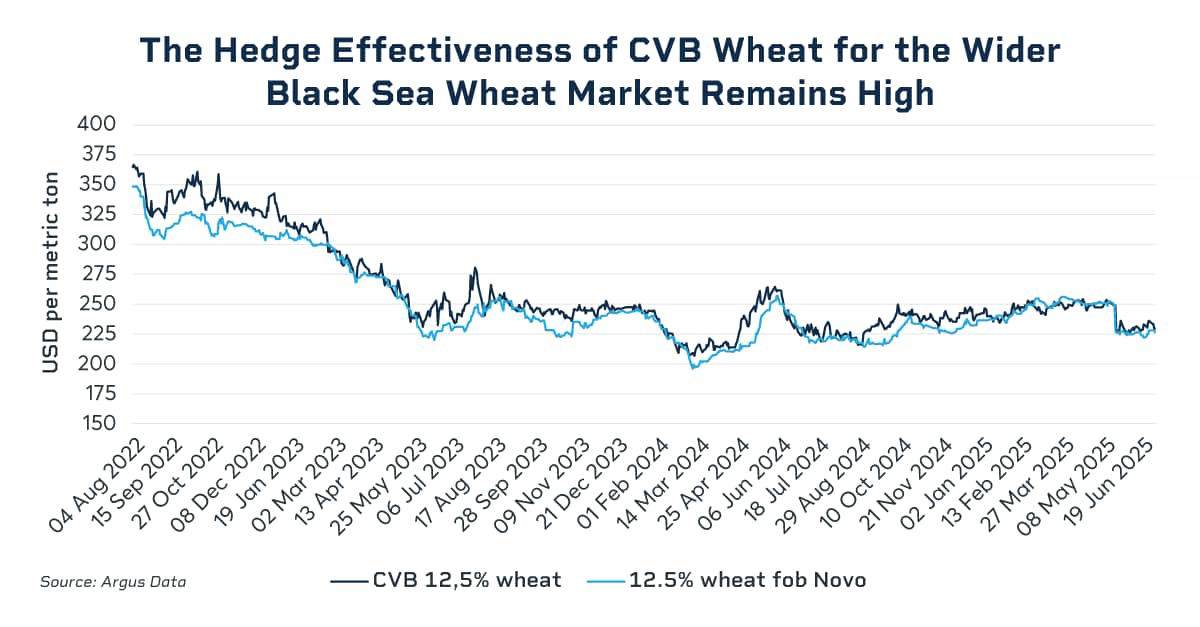
Historical Volatility in the Black Sea Wheat Markets Remains Elevated on Continued Supply Uncertainty
The 30-day historical annualized volatility, an important statistical indicator measuring the historical changes in the underlying commodity, shows that CVB wheat has traded in a range of 15% to 30% volatility since September 2023. Higher levels of price volatility typically lead to greater trading interest to manage risk against an underlying commodity.
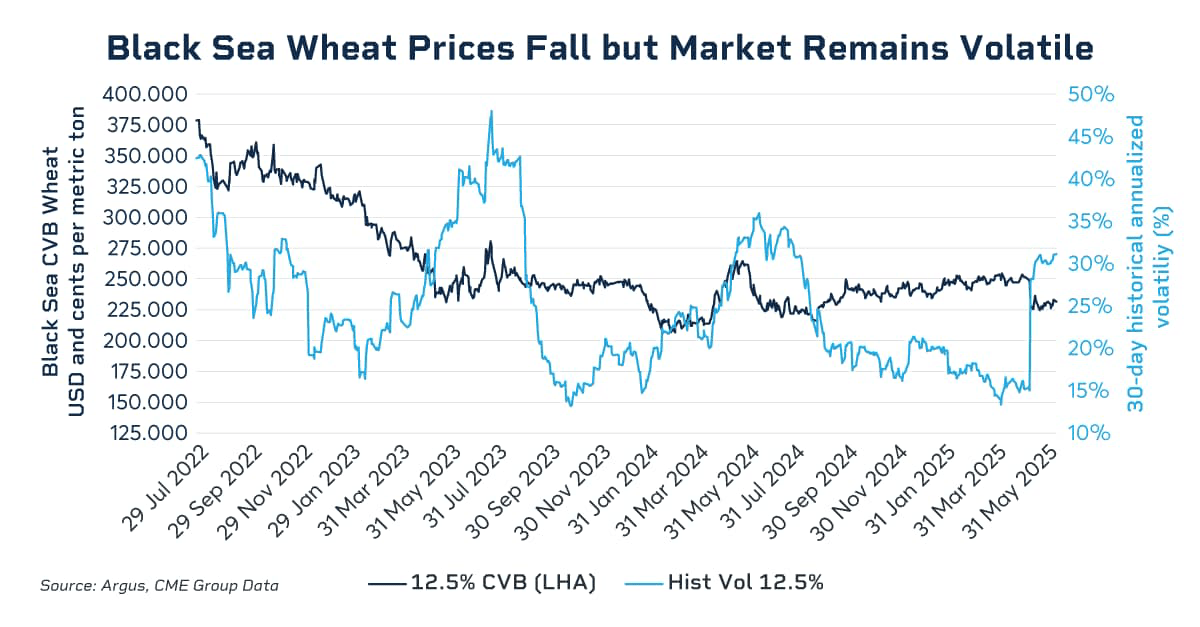
Compounding the implications of the Russia-Ukraine war are weather-related challenges impacting the 2025 wheat harvest in parts of the Black Sea region. In Russia and Ukraine, there are expected to be smaller crops compared to previous years for the 2025-2026 marketing year. Ukraine is facing its own set of unfavorable weather conditions, with Ukrainian Agriculture Minister Vitaliy Koval estimating that 2025’s grain harvest could fall 10%. Meanwhile, Romania could see its biggest wheat crop since 1997, in part due to more favorable weather conditions. These supply uncertainties have seen heightened levels of volatility in the Black Sea wheat region.
As trading in the Black Sea continues to evolve, the role it could play for pricing on the global stage is likely to increase. Buyers of grain from the Black Sea, such as those in Asia and North Africa, could benchmark cargoes to an increasingly liquid Black Sea reference price. More broadly, as the global wheat trade continues to expand, risk management tools could play an increasingly important role for market participants across the supply chain.
Original Post
Editor’s Note: The summary bullets for this article were chosen by Seeking Alpha editors.
#Romania #Bulgaria #Assume #Benchmark #Role #Black #Sea #Wheat #Trading